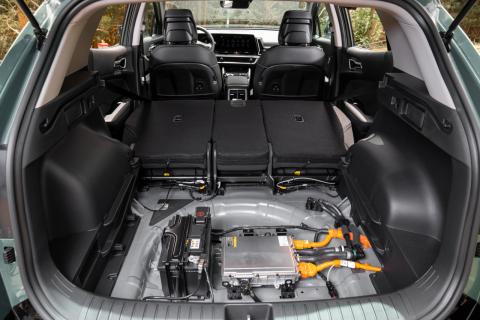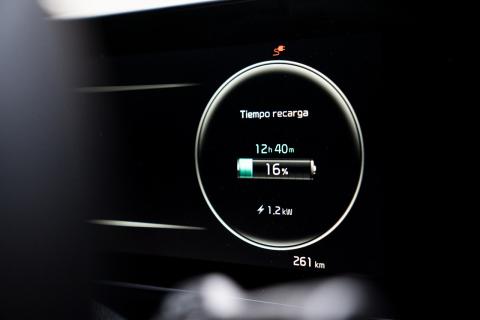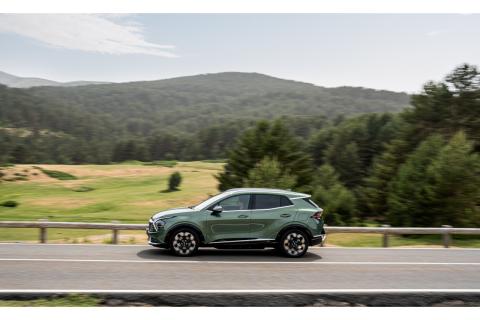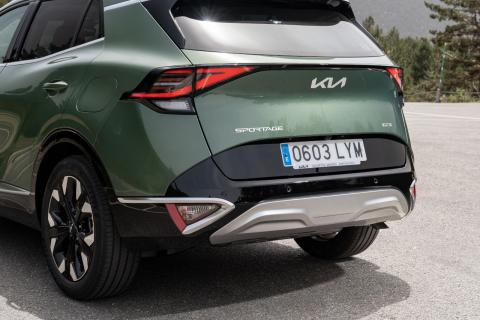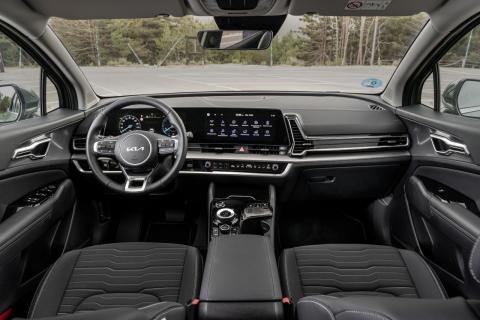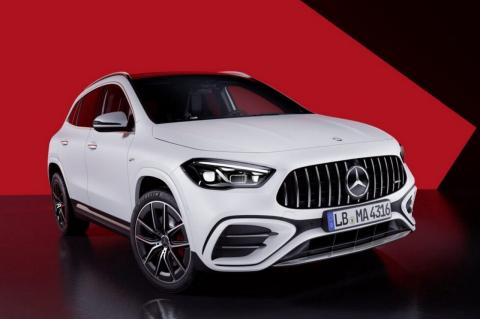

Which is the better plug-in hybrid option, the Volkswagen Tiguan PHEV or the Kia Sportage PHEV? We analyze what these two hybrid SUVs offer.
Plug-in hybrid cars are a great option if you’re not willing to make the ultimate leap to a pure electric car. They combine the best of two worlds, the peace of mind of having a conventional gasoline engine and the efficiency of having a generous electric autonomy for day to day, as well as the fact of accessing the DGT 0 Emissions label.
Today we want to offer you two very interesting plug-in hybrid options if you are thinking of buying a car this year. We are going to analyze in one of our technical comparisons which is better, the Volkswagen Tiguan PHEV or the Kia Sportage PHEV, and at the end we will offer you the strengths of each model so that you can make the best purchase decision based on your needs.
Dimensions
We start with the dimensions of the Volkswagen Tiguan eHybrid. The plug-in hybrid version of the German SUV has a body that is 4,510 mm long, 1,840 mm wide and 1,670 mm high, all on a platform with a 2,680 mm wheelbase.
For its part, the new Kia Sportage PHEV is one of the two hybrid versions available in the Korean SUV range (the other is a non-plug-in hybrid). This model measures 4,515 mm long, 1,865 mm wide and 1,650 mm high, with a wheelbase that reaches 2,680 mm.
Trunk
Let’s go with the trunk. It should be noted that, in both SUVs, the interior offers space for up to five passengers, but there are differences in terms of the volumetric capacity of the cargo compartment. The Volkswagen model offers 475 liters of volume in the trunk, expandable to 1,515 liters by folding down the rear seat backs.
Meanwhile, the Kia model does the same with a trunk that offers up to 540 liters of volumetric capacity without giving up any of its seats, although by folding down the rear seat backs this figure grows to 1,715 liters.
Motorization
In the motorization section, the Tiguan eHybrid is equipped with a 1.4-liter turbo gasoline engine with 150 HP of power to which is joined an 85 kW electric drive. This results in a combined power of 245 hp with 400 Nm of torque, which is managed by a six-speed dual-clutch DSG automatic transmission that sends all the energy to the front end.
The mechanical configuration of the Sportage PHEV is made up of a 1.6-liter diesel turbo engine that delivers 180 HP of power. The electric motor in this case offers 67 kW and the combined power amounts to 265 hp with 350 Nm of torque. It is also automatic, with a six-speed transmission with torque converter, although it offers four-wheel drive as standard.
Autonomy
On the other hand, in terms of autonomy there are also some significant differences between the two models. The plug-in hybrid Tiguan is equipped with a 13 kWh battery (9.2 kWh net) that allows it to travel up to 50 kilometers in electric mode on a single charge. The approved consumption is 1.6 l/100 km and CO2 emissions amount to 36 g/km.
In the case of the plug-in hybrid Sportage, the battery has an energy capacity of 13.8 kWh (gross), which is enough to certify 70 kilometers of electric autonomy, with an average consumption of 1.1 l/100 km and emissions of CO2 of 25 g/km.
Prices
And with regard to prices, the Volkswagen Tiguan eHybrid in the Life finish of access to the range starts in Spain from 47,700 euros without discounts or promotions applied. However, since last December, Volkswagen has not accepted orders for this model due to production restrictions.
The price of the Kia Sportage PHEV is 45,900 euros in the range-access Drive version. This model, on the other hand, is for sale and Kia accepts new orders for the plug-in hybrid SUV.
Conclution
As you may have seen, the Kia Sportage PHEV is 5 mm longer, 25 mm wider and 20 mm lower than the Volkswagen Tiguan PHEV. In addition to the slight difference between the two, the wheelbase is identical and both have five seats inside, although the Kia has 65 liters more boot space with five seats and 200 liters more with only the two front ones available.
In the mechanical section, the difference is minimal in terms of power, since the Sportage has 20 more hp, but the Tiguan makes up for it with an additional 50 Nm of torque. Both are automatic, but the Kia has standard four-wheel drive going for it.
Where there are more differences is in the energy capacity of the battery, which is greater in the Kia Sportage plug-in hybrid, and in the electric range, with a clear advantage of 20 kilometers in favor of the South Korean model. In addition, it achieves better figures for average consumption and CO2 emissions. Both have a 0 Emissions DGT label.
Lastly, prices are slightly lower on the Kia Sportage PHEV. If you are interested in the Volkswagen Tiguan eHybrid, it cannot be purchased at the moment due to production restrictions, although it will presumably be available again in the future.








